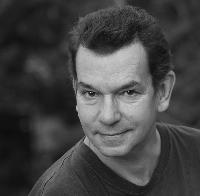| Pages in topic: [1 2] > | Poll: Do you live in your native country? Thread poster: ProZ.com Staff
|
|---|
| | Juan Jacob 
Mexico
Local time: 02:15
French to Spanish
+ ...
Born in Brussels (Belgian father -french speaking-, Spanish mother -spanish and catalan speaking-... a good start for a translator), lived in Belgium a few years, then in Cuba, in Switzerland and finaly here, in Mexico.
| | | | Heidi C 
Local time: 03:15
English to Spanish
+ ...
| Great question! | Nov 9, 2006 |
Was always curious about this...
By the way, also wondering:
If you don't live in your native country, what country do you pick for your profile: where you come from or where you're living?
Regards,
Heidi
| | | |
I am British born and lived there for most of my life (more than 50 years). For the last 6 years I have lived in Valencia Spain. Here I studied Spanish language, communicated with my Spanish neighbours, and am now here as forever forever can be.
Some agencies/clients don't like their "native" translators to live in their source language too long as their native language may deteriorate or copy the style of that country.
This may hold true for, say, an 18-21 year old living in a forei... See more I am British born and lived there for most of my life (more than 50 years). For the last 6 years I have lived in Valencia Spain. Here I studied Spanish language, communicated with my Spanish neighbours, and am now here as forever forever can be.
Some agencies/clients don't like their "native" translators to live in their source language too long as their native language may deteriorate or copy the style of that country.
This may hold true for, say, an 18-21 year old living in a foreign country for a long time, but I believe my English is so ingrained it will never leave me.
It's a shame it could not be a double-edged question, as I believe that more Europeans do not live in their native country than Americans!!?? ▲ Collapse
| | |
|
|
|
Steven Capsuto 
United States
Local time: 03:15
Spanish to English
+ ...
| Size *does* matter | Nov 9, 2006 |
David Brown wrote:
It's a shame it could not be a double-edged question, as I believe that more Europeans do not live in their native country than Americans!!??
That makes sense as a simple matter of geography, as there are several very large countries in the Americas. For instance, I could move 50 miles, 300 miles, or 3,000 miles and still be in the United States. By contrast, if you travel 3,000 miles from where you live in Valencia, you cross multiple national borders.
| | | | Tadej Kokalj 
Slovenia
Local time: 09:15
English to Slovenian
+ ...
| Yes, size do matter | Nov 9, 2006 |
Pole should than be: Do you live in your native county/state?
And for me: As a typical Slovenian, haven't moved a meter since born (with exception of few moths in Switzerland) - still same adress
| | | | Olivia MAHÉ 
France
Local time: 09:15
English to French
+ ...
| The question should read: | Nov 9, 2006 |
do you live in your native LANGUAGE country, obviously!
[Edited at 2006-11-09 18:37]
| | | |
Olivia MAHÉ wrote:
The question should read:
do you live in your native LANGUAGE country, obviously!
I understand that the poll asks if you live in the country where you where born. It is a good question.
Enrique
| | |
|
|
|
| Maybe because Olivia posed the question originally ..... | Nov 9, 2006 |
Enrique wrote:
Olivia MAHÉ wrote:
The question should read:
do you live in your native LANGUAGE country, obviously!
I understand that the poll asks if you live in the country where you where born. It is a good question.
Enrique
...... and she is therefore confirming what she intended it to read.
If you were born in England, to English parents and now live in Australia, the answer to your interpretation of the question would be NO.
The answer to the question Olivia posed - and which she meant to phrase as she states above or which was edited after she submitted it - would be YES (accepting variants of the same language for the purposes of the question)
Can make a world of difference (excuse the pun).
[Edited at 2006-11-09 22:51]
| | | | mediamatrix (X)
Local time: 05:15
Spanish to English
+ ...
| You've got me thinking ... | Nov 9, 2006 |
From 0 to 25 years I was in my native country - the UK - absolutely non-stop apart from a one-day school trip to Bologne (France) at the age of around 12.
From age 25 to now I've hardly set foot in the UK, having lived and worked in Honduras, Guatemala, Belgium and Switzerland - and for the last three years in Chile.
So, I spent roughly the first half my life in the UK, the second half outside the UK - and I'm just wondering where I shall end up spending the third half<... See more From 0 to 25 years I was in my native country - the UK - absolutely non-stop apart from a one-day school trip to Bologne (France) at the age of around 12.
From age 25 to now I've hardly set foot in the UK, having lived and worked in Honduras, Guatemala, Belgium and Switzerland - and for the last three years in Chile.
So, I spent roughly the first half my life in the UK, the second half outside the UK - and I'm just wondering where I shall end up spending the third half ! !
MediaMatrix
[Edited at 2006-11-09 22:54] ▲ Collapse
| | | | | This is an excellent answer to my question :-) | Nov 10, 2006 |
Lawyer-Linguist wrote:
Enrique wrote:
Olivia MAHÉ wrote:
The question should read:
do you live in your native LANGUAGE country, obviously!
I understand that the poll asks if you live in the country where you where born. It is a good question.
Enrique
Maybe because Olivia posed the question originally ... and she is therefore confirming what she intended it to read.
I had not realized that the comment came from the person who had suggested the poll.
Regards,
Enrique
| | | | Balasubramaniam L. 
India
Local time: 13:45
Member (2006)
English to Hindi
+ ...
SITE LOCALIZER | The question is irrelevant to multicultural countries like India | Nov 10, 2006 |
How would one define the nativity of a person from India, which has hundreds of nativities living within its political borders? If a Hindi native moves to a Tamil native-speaking area of India, he/she is still technically within his country, but the native area has changed. The situation is further compounded by the fact that most Indians are bi(multi)lingual and stradle more than one language as language territories usually overlap.
The question reveals a mainly 18th and 19th centu... See more How would one define the nativity of a person from India, which has hundreds of nativities living within its political borders? If a Hindi native moves to a Tamil native-speaking area of India, he/she is still technically within his country, but the native area has changed. The situation is further compounded by the fact that most Indians are bi(multi)lingual and stradle more than one language as language territories usually overlap.
The question reveals a mainly 18th and 19th century mind set, when virulent nationalism emerged and engulfed the world into two disastrous world wars. The underlying concept of nationalism was one nation-one language. This wiped out the linguistic diversity of most of Europe leaving single languages ruling the roost in most political units, which were mostly at war with each other not only in Europe, but also wherever they had colonies. But this skewed linguistic situation of Europe cannot be taken as the norm for the world. Most countries of the world are multi-lingual to a large extent. With the formation of the European Union and the dissolution of old, feuding national identities, even Europe is reverting to its former, more natural, multi-clutural, multi-lingual form.
The problem with the question is that it assumes that the boundaries of languages are coterminus with the boundaries of nations. Anything further from reality cannot be imagined. Many languages have broken free from national boundaries. English, for example, is now no longer restricted to the island of England, but is spoken extensively in India, Pakistan, Bangladesh, Kenya, South Africa, USA, Canada, New Zealand, Australia and many other places. Same is the case with Hindi, Spanish, Arabic, Portuguese and many other world languages.
On the other hand, many multicultural countries like India or USA have a number of languages spoken within their borders. India has 19 official languages and more than a thousand distinct languges.
Probably the question would have made more sense if it had been worded as: Do you live within the geographical boundaries of your language in your country?
[Edited at 2006-11-10 03:07] ▲ Collapse
| | |
|
|
|
| Well…yes and no | Nov 10, 2006 |
For a moment I wanted to click the yes button, but then stopped short, realizing that I actually do not know. I have not moved, I still speak the same language – but my country changed, and the name of my native language changed too. I was born and lived all my life in what was known as Yugoslavia, my native tongue was Serbo-Croat for the good part of my life. Then my country broke up into six independent states and my hometown, Sarajevo, Bosnia and Herzegovina, is now in a different country, ... See more For a moment I wanted to click the yes button, but then stopped short, realizing that I actually do not know. I have not moved, I still speak the same language – but my country changed, and the name of my native language changed too. I was born and lived all my life in what was known as Yugoslavia, my native tongue was Serbo-Croat for the good part of my life. Then my country broke up into six independent states and my hometown, Sarajevo, Bosnia and Herzegovina, is now in a different country, while I have been living in Belgrade, Serbia, ever since my childhood. The language spoken in Bosnia and Herzegovina is now referred to as Bosnian (should be the same one that I was taught at school in Sarajevo as Serbo-Croat, one cannot change the native language of the whole population), while its “Eastern dialect” is now officially named Serbian. Croatian is the official name of the erstwhile Serbo-Croat “Western dialect”.
Therefore, Balasubramaniam is right:
[quote]:
Probably the question would have made more sense if it had been worded as: Do you live within the geographical boundaries of your language in your country?
▲ Collapse
| | | | Carolyn Brice 
Greece
Local time: 10:15
Member (2005)
French to English
+ ...
| I have NEVER lived in my "native" country | Nov 10, 2006 |
The way I read the question seems to be the way Olivia meant it, and so I answered accordingly (no). Being from a French mother and New Zealander father (therefore French/English native speaker), I can say I have never lived in either of those countries, but rather in the UK (where I was born), then Germany, then Kuwait, then the UK again (for the longest period- 14 years). Now I live in Greece.
End result: always a foreigner!!
And to answer someone's question about wha... See more The way I read the question seems to be the way Olivia meant it, and so I answered accordingly (no). Being from a French mother and New Zealander father (therefore French/English native speaker), I can say I have never lived in either of those countries, but rather in the UK (where I was born), then Germany, then Kuwait, then the UK again (for the longest period- 14 years). Now I live in Greece.
End result: always a foreigner!!
And to answer someone's question about what to put on yourprofile, I put my country of residence of course. ▲ Collapse
| | | | | Simple question, complex answer! | Nov 10, 2006 |
No, I don't live in my native country, which is India.
Unfortunately I don't speak any of the languages either, because in multilingual, multicultural Bombay (now Mumbai) one did not allow small white children out on the streets alone. My parents spoke Marathi fluently, and my father taught New Testament Greek... and could read several other languages when he needed to.
I learnt a lot of Latin at school in the UK, but the teacher frightened me off Greek except for what... See more No, I don't live in my native country, which is India.
Unfortunately I don't speak any of the languages either, because in multilingual, multicultural Bombay (now Mumbai) one did not allow small white children out on the streets alone. My parents spoke Marathi fluently, and my father taught New Testament Greek... and could read several other languages when he needed to.
I learnt a lot of Latin at school in the UK, but the teacher frightened me off Greek except for what I learned from the biology teacher!
Living in Denmark is ideal for me - you can't escape English unless you keep away from the TV and avoid quite a lot of products i the shops and supermarkets!
With just a little effort there is access to good quality English and American broadcasts by satellite TV, or newspapers and magazines on the Internet... while Danish Radio only dubs films if they are intended for children. Films, documentaries and programmes for everyone else are subtitled and you hear the original dialogue in English, German, Arabic or whatever! It's a great way to learn and keep in touch with the language, while at the same time life goes on in Danish all around you.
It's and ideal situation for a translator! ▲ Collapse
| | | | | Pages in topic: [1 2] > | To report site rules violations or get help, contact a site moderator: You can also contact site staff by submitting a support request » Poll: Do you live in your native country? | Pastey | Your smart companion app
Pastey is an innovative desktop application that bridges the gap between human expertise and artificial intelligence. With intuitive keyboard shortcuts, Pastey transforms your source text into AI-powered draft translations.
Find out more » |
| | TM-Town | Manage your TMs and Terms ... and boost your translation business
Are you ready for something fresh in the industry? TM-Town is a unique new site for you -- the freelance translator -- to store, manage and share translation memories (TMs) and glossaries...and potentially meet new clients on the basis of your prior work.
More info » |
|
| | | | X Sign in to your ProZ.com account... | | | | | |
















